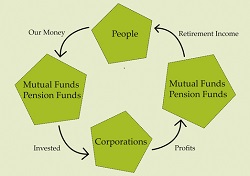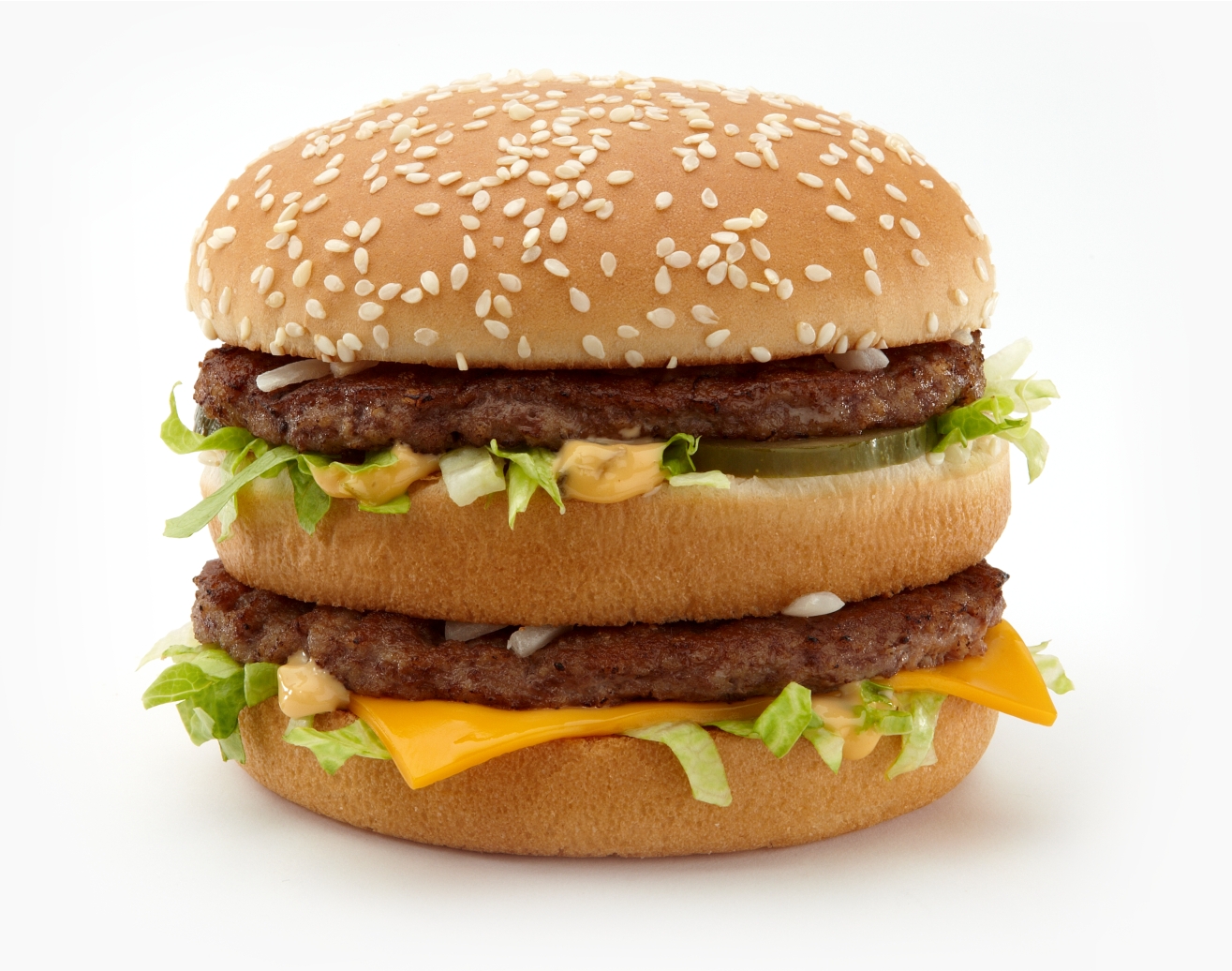|
People, Profits, & Pensions |
|
McDonald's Q4 and 2013 Earnings
January 23, 2014
At this site, we explore the earnings report in a way that helps us understand how working, middle class people are affected. Some of the big pension funds with major holdings of McDonald's stock include: the New York State Common Retirement Fund, the California Public Employees' Retirement System (CalPERS), and the New York State Teachers' Retirement System (based on information from nasdaq.com's Institutional Owners pages. Top spots in the list of mutual funds that own McDonald's belong mainly to index funds, including Vanguard Total Stock Market Index Fund, SPDR S&P 500 ETF Trust, and Vanguard Institutional Index Fund-Institutional Index Fund. Each of these funds owns literally millions of shares, meaning that a small move in the stock price or dividend has a significant effect on a fund's fortunes. These shares ultimately belong to the funds' contributors, mainly working, middle class people (just about everyone who participates in a pension fund is by definition, a working person, and most contributors to mutual funds belong to the middle class). As for the earnings report from McDonald's, the news was generally described as lacklustre. However, the company did beat the consensus estimate by a penny, which may have been what led the stock price to pop up a bit when the market opened.
The Bigger Picture:Will Profits from Big Macs Add to Your Retirement Income?In 1948, the McDonald brothers redesigned and remodelled their drive-in restaurant in San Bernardino, California. Taking inspiration from Henry Ford's assembly-line, they created the fast food revolution, with the quick service and low prices we now take for granted. In that same year, the U.S. National Labor Relations Board ruled unions could include pension issues in contract negotiations. That ignited a massive expansion of pension plans. In the 1950s, pension funds started buying stocks, rather than just bonds or their equivalents; in addition mutual funds came of age. With these two developments working, middle class people became owners of big business. At first, their stakes were modest, but steadily growing. And in just a few decades, they gained controlling interests in many large corporations through their funds. Management guru Peter Drucker has called it, "...one of the most startling power shifts in economic history." Now, working people reap the benefits of those investments, collecting much of the profit distributed by McDonald's and other big corporations. Discover how the pieces fit together. In Big Macs & Our Pensions: Who Gets McDonald's Profits? - a new booklet -(about 25-pages), you will:
You may not be among the owners of McDonald's. But if you belong to any pension plan, or contribute to a mutual fund or whole life insurance policy, you likely own pieces of some big corporations. More importantly, though, your retirement income will be bigger and grow more dependably than you would otherwise expect. Big Macs & Our Pensions: Who Gets McDonald's Profits? is now available at Amazon.com
|

The Ownership Cycle
Copyright 2014. Robert F. Abbott, All Rights
Reserved.
|

 By: Robert F. Abbott, author of
By: Robert F. Abbott, author of  McDonald's has announced its much anticipated Q4 and 2013 annual earnings.
McDonald's has announced its much anticipated Q4 and 2013 annual earnings.